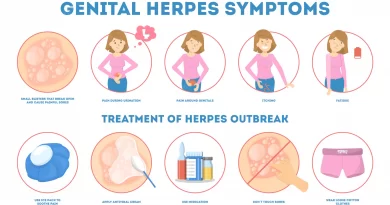Tips to Go to Sleep Faster and Stay Asleep All Night
In these hectic times, it’s easy to forget the importance of sleep. For many, sleep is just something you do with what’s left of the night once you’ve finished checking your phones or binge-watching the latest series until your eyes can’t take it anymore.
However, around 35% of adults report frequently having trouble sleeping. If you’re one of these people, then perhaps you’re looking for some reliable tips to go to sleep faster.
When your brain is still whirring away from the day’s activities, it can be challenging to get it to shut down. But don’t fear! Let’s take a closer look at some sleep tips, like how to wind down at the end of your day and get a good night’s sleep.
The Importance of a Good Night’s Sleep
Sleep is crucial to your physical and mental health. For anyone who is looking to improve their overall health, then sleep is just as important as hydration, diet, and exercise. For anyone leading a stressful life, a good night’s sleep is the reset button your brain and body need to ready for another high-octane day.
When you’re sleeping, your blood pressure lowers, and your heart rate steadies, creating a perfect environment for your body to recuperate from the day. The growth hormone is released, and the amount of cortisol in the bloodstream lowers.
Sleep is crucial for optimum cognitive function. Those who suffer from lack of sleep are more likely to struggle with memory and decision making. The increase in cortisol from lack of sleep can make us more irritable and more prone to stress.
Lack of sleep can also lead to several more severe health issues such as depression, heart disease, weight gain, and a compromised immune system. Rest is a huge part of how the body repairs and regulates itself, so you must learn how to get enough of it!
Tips to Go to Sleep Faster
We’ve all been there: You get into bed and put your head down, but your brain stays active. You can’t find a comfortable position, or you suddenly need to check something on your phone. Several reasons keep us from falling asleep, so let’s take a look at ways we can combat them.
Take Charge of Your Environment
Your sleeping environment is key to a good night’s sleep. First of all, you need to make sure that your brain associates your bed with sleep and very little else. Avoid using your bed for anything other than sleep and sex, so when you do get in at the end of the day, your brain knows the reason it’s there.
When you fall asleep, your core body temperature drops. When your core body temperature rises, your body associates it with waking up. With this in mind, make sure that your bedroom is cool (around 18 degrees).
Some people are more bothered by noise at night than others, but it’s important to make sure your bedroom is as quiet as possible. You can do several things to better insulate your bedroom, such as:
- Placing a towel beneath the bedroom door
- Invest in double-glazing for your bedroom windows
- Use heavy drapes on your windows
- Use carpets and rugs to isolate any noise from below
- Try a white noise machine to cancel out any unwanted noise
- Use earplugs if all else fails
Your mattress and pillows might even be to blame for your lack of sleep, so make sure that what you are sleeping on feels comfortable.
Look After Your Natural Sleep Cycle
Your body has a natural sleep and wake cycle called the Circadian rhythm. It’s like an internal alarm clock. During hours of daylight, we are designed to be awake and alert, and once the sun goes down, we begin to produce melatonin that helps to promote sleep.
To stay true to your circadian rhythm, it’s important to have a regular sleep schedule.
Try and go to bed at the same time each night and wake up at the same time. Keep naps to a minimum of 20-30 minutes and in the early afternoon. Reduce your exposure to artificial light in the evening, as this will confuse your circadian rhythm.
Develop a Healthy Evening Routine
How you wind down at the end of the day will have a lot to say about how easily you fall asleep. Engaging in relaxing activities as you get closer to bedtime is a great way to get your ready for sleeping. Try reading a book, meditating, taking a hot bath, or doing something creative.
Blue Light & Melatonin
One of the biggest causes of not being able to get to sleep is blue light. Blue light is light emitted from your phone, TV, computer, or tablet. Blue light disrupts melatonin production and makes you more alert even if you feel tired.
Ideally, stop using any devices that emit blue light two to three hours before you’re planning on sleeping. If, for whatever reason, you need to use your computer in the evening, it’s recommended that you invest in some glasses with blue light protection.
If your melatonin levels are low due to overexposure to blue light, it is possible to take supplements to increase your melatonin levels. Tablets and melatonin gummies are readily available over the counter. It’s important only to use them short-term, though, and not to combine them with any other sleeping medication.
How to Sleep Through the Night
Now you know how to fall asleep—the secret is staying asleep. Most of the tips above will help contribute to a good night’s sleep, but you might want to try the following.
Avoid Drinking Alcohol Close to Bedtime
It’s common to use a nightcap to help you fall asleep. However, alcohol can interrupt your sleep cycle, meaning you’re unlikely to sleep through the night. Aim to drink alcohol no later than 3-4 hours before when you’re planning on going to sleep.
Avoid Drinking Too Much Liquid Close to Bedtime
It’s important to make sure you’re adequately hydrated. Try to make sure you get your recommended intake of water throughout the day. Drinking too much liquid close to bedtime means you’re likely to wake up needing the toilet, though!
Cut Down on Naps
If you’re a fan of napping during the day, you might want to restrict yourself. Sleeping too much during the day will make it harder to sleep through the night. If you’re going to nap, do it in the early afternoon and keep it to a maximum of 30 minutes.
Get More Exercise
Exercise helps to promote healthy sleep. If you’re having trouble sleeping, then make sure you’re engaging in a minimum of 30 minutes of moderate to intense aerobic exercise each day.
It’s Time for a Good Night’s Sleep
These tips to go to sleep faster and sleep through the night should get you closer to the recommended amount of 7-8 hours of sleep in no time. If you do find yourself unable to sleep, then get up and move around or do something relaxing. It’s important not to get stressed by the idea of falling asleep.
If your sleep problems persist, then be sure to reach out to a medical professional who will be able to rule out any underlying issues and prescribe a remedy to your sleeping problems.
Be sure to take a look at the rest of our site for more on living a healthy and happy life.



